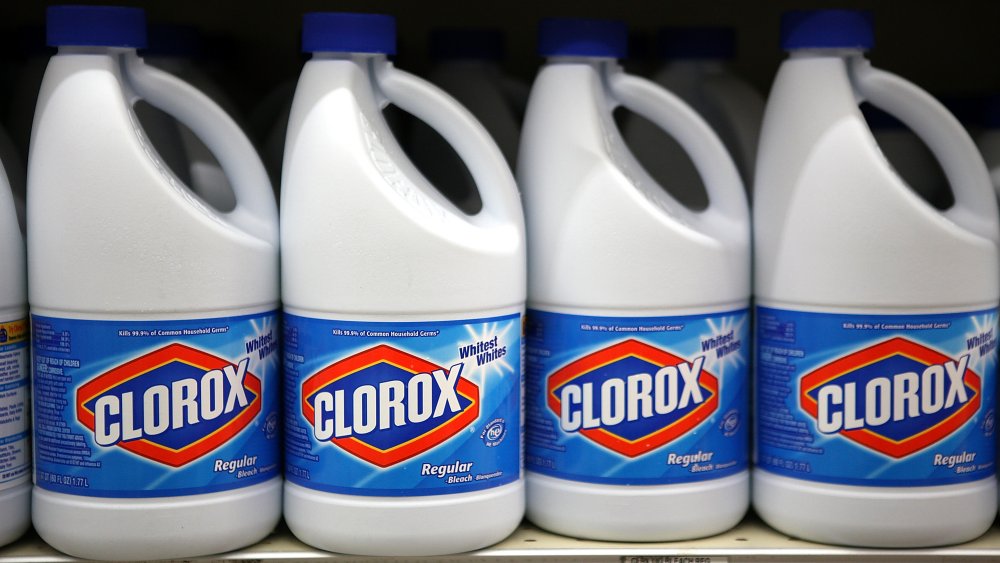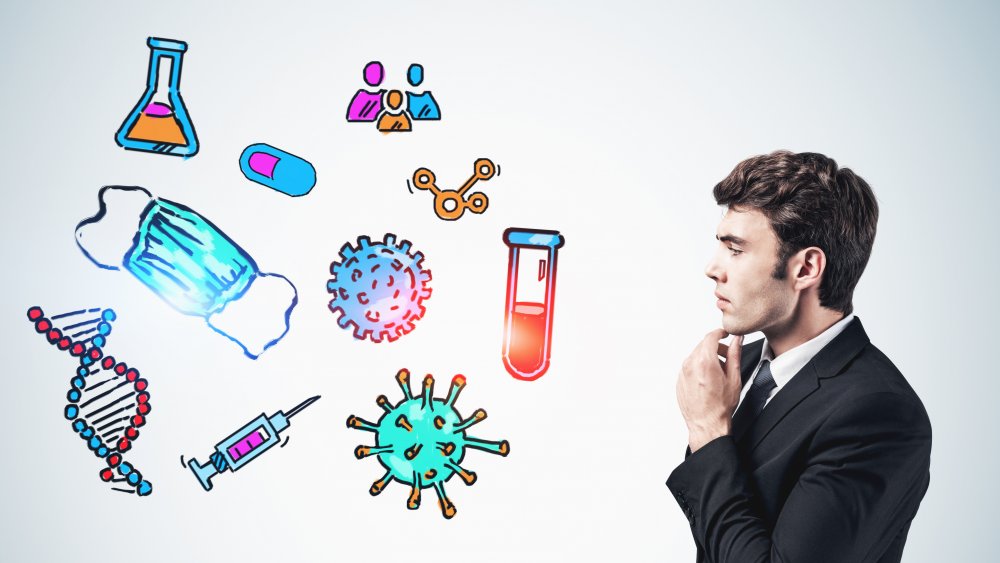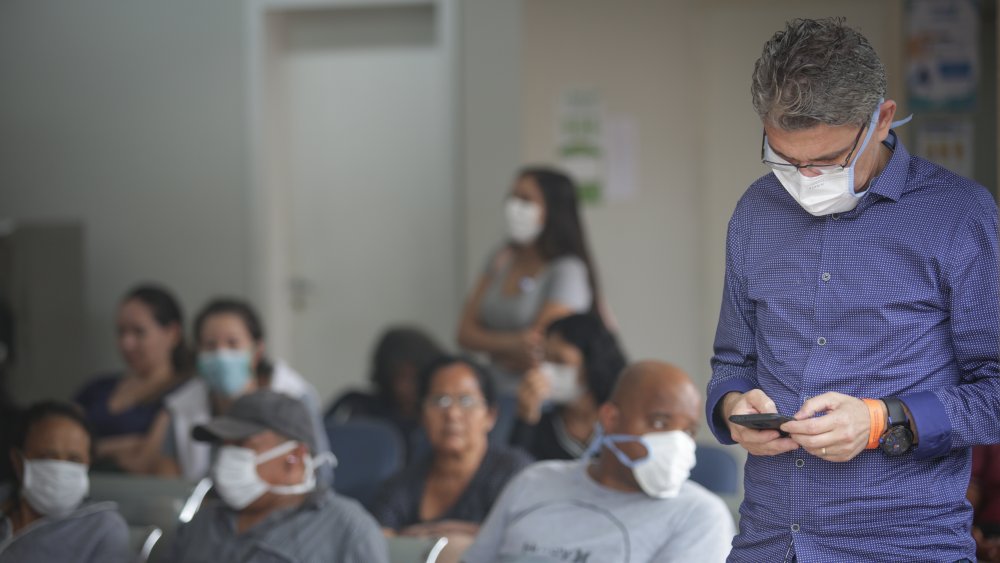Coronavirus Myths You Need To Stop Believing
In times of extreme uncertainty and peril, various conspiracy theories and myths crop up like brain weeds, leeching precious mental resources that should go to more fruitful pursuits. Pandemics provide fertile ground for such false claims to take root. And as the coronavirus, also known as COVID-19, has caused global upheaval, bogus claims about the illness have spread. While the urge to latch onto any semblance of certainty like a desperate barnacle is understandable, misinformation about the virus can cause immense harm to individuals who believe it or leave them open to exploitation by unscrupulous actors. Hopefully you don't believe any of the following falsehoods, but in case you or others do, spreading the truth is the best preventative medicine.
Don't drink bleach to fight coronavirus
The internet has a troubling history of promoting bleach as a cure for whatever ails you. In May 2019, NBC reported that parents were force-feeding children bleach in hopes of curing their autism, prompting a pair of concerned moms to go undercover to infiltrate online groups promoting that myth. People have also called the caustic a cure for cancer, hepatitis, and HIV, per ScienceAlert. The problem became so alarming that in 2019, the FDA issued a warning not to ingest bleach. Unfortunately, not everyone had heeded it because a similar myth has spread about coronavirus.
According to CBS, a QAnon Youtuber with more than 120,000 Twitter followers touted a "miracle mineral solution" for the virus that entailed drinking bleach. But bleach is more likely to cure you of being alive because it can cause "severe vomiting, severe diarrhea, life-threatening low blood pressure caused by dehydration, and acute liver failure." This isn't the sort of thing you want in your body.
Chinese food won't poison you with coronavirus
Via the Wiley Online Library, the parasite stress hypothesis holds that immunological threats shape social behavior. This can generate prejudices against specific social groups. For instance, during the Black Death, Jews are accused of intentionally spreading the plague and mercilessly persecuted. With respect to coronavirus, illness-driven fears have fomented xenophobia against people from Asia countries, especially China, where the outbreak first occurred. Restaurant Hospitality reports that between January and February 2020, restaurants in New York City's Chinatown saw a 40 percent drop in sales, and some establishments suffered losses as high as 70 to 80 percent.
Per Live Science, Chinese food will not give you coronavirus. One would also be mistaken to think that packages from China pose a special threat. While the coronavirus can last on surfaces such as glass or plastic for as long as nine days, packing materials aren't a good environment for the virus to thrive. And even if the virus could spread the restaurant food or packages, non-Chinese items wouldn't be immune. The coronavirus doesn't discriminate by ethnicity or nationality, and neither should people.
No, it's not the same as the cold or the flu
In March 2020 Media Matters posted an audio clip from The Rush Limbaugh Show, in which its eponymous host mostly dismissed the risks posed by the COVID-19. Limbaugh likened the virus to the common cold and flu, claiming, "There is nothing about this, except where it came from, and the itinerant media panic that — you can't blame people reacting the way they're reacting, if they pay any, even scant attention to the media."
Not to disagree with a Medal of Freedom recipient who once told listeners not to evacuate Florida during Hurricane Irma despite evacuating himself, but Limbaugh's lip service does a grave disservice. Just in case this disclaimer is necessary, obviously, nobody should try to foment alarmism about COVID-19, but try telling Italy that this virus poses no unusual threat. As of March 13, 2020, the country has had more than 15,000 confirmed cases and more than 1,000 deaths, per the BBC. The explosion of infections taxed medical facilities to the point that it forced physicians to deny adequate care to some patients due to lack of resources, according to the Atlantic. Italy closed virtually every business beyond pharmacies and grocery stores, per Axios.
Similar symptoms, different outcomes
In the state of Massachusetts, coronavirus transmissions have a "similar trajectory" to Italy's, according to Northeastern University assistant professor Samuel Scarpino. Virologist Dr. Sankar Swaminathan from the University of Utah Health explained that what sets this pandemic apart from the flu is that "we have much more capability and expertise to treat and prevent the flu that we don't yet have with coronavirus."
So while sufferers of the respective illnesses exhibit similar symptoms, there's a huge difference in physicians' ability to treat them. Moreover, the mortality rate of COVID-19 seems to be "many times higher" than that of the flu. And even if it doesn't severely impact you, if you spread it to someone who's less immune, that could be disastrous for them. So while pushing the panic button on your brain is ill advised, it's important to take your own health and others' seriously.




